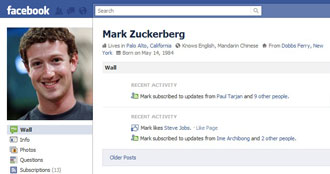 The US government claims it has the right to steal your photos and pretend to be you on social networking sites so that it can trick your friends into admitting illegal acts.
The US government claims it has the right to steal your photos and pretend to be you on social networking sites so that it can trick your friends into admitting illegal acts.
The Justice Department is claiming that a federal agent had the right to impersonate a young woman online by creating a Facebook page in her name without her knowledge. The agent managed to do this by stealing pictures from the woman’s seized mobile and sticking racy pictures of her and even one of her young son and niece to a fake social media account.
The woman, Sondra Arquiett, who then went by the name Sondra Prince, discovered that the spooks had stolen her ID in 2010 when a friend asked about the pictures she was posting on her Facebook page. There were risqué pictures of her posing on the hood of a BMW with her legs spread, and others with her in her underwear.
The account was actually set up by US Drug Enforcement Administration special agent Timothy Sinnigen who had arrested Arquiett, alleging she was part of a drug ring. A judge decided that that the single mom was a bit player who accepted responsibility and sentenced her to probation.
While she was awaiting trial, Sinnigen created the fake Facebook page using Arquiett’s real name, posted photos from her seized cell phone, and communicated with at least one wanted fugitive — all without her knowledge.
Facebook’s “Community Standards” say that “Claiming to be another person, creating a false presence for an organisation, or creating multiple accounts undermines community and violates Facebook’s terms” and there there is no exception for cops and spooks.
The bogus Facebook page is still there though.
The DEA’s actions might never have come to light if Arquiett, now 28, hadn’t sued Sinnigen, accusing him in federal district court in Syracuse, New York, of violating her privacy and placing her in danger.
The government’s response said that: “Defendants admit that Plaintiff did not give express permission for the use of photographs contained on her phone on an undercover Facebook page, but state the Plaintiff implicitly consented by granting access to the information stored in her mobile and by consenting to the use of that information to aid in an ongoing criminal investigations.”
In other words the US government can come into your house take your photographs and post them online if it thinks it can use them to arrest your friends. When Arquiett gave permission for the FBI to look at her phone she cannot have imagined that she would have consented to her data being used in like that, but apparently the US Justice department thinks it is OK.
 Social networking company Facebook said in a statement that requests by different governments round the world sharply rose during the first half of this year.
Social networking company Facebook said in a statement that requests by different governments round the world sharply rose during the first half of this year.

















